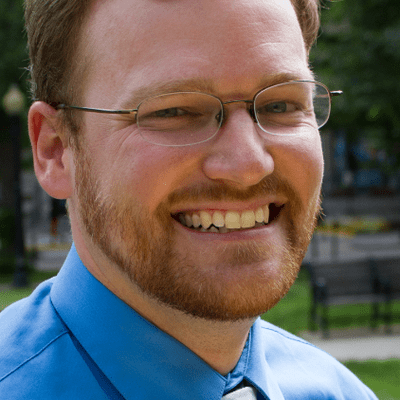Introduction
States from Wyoming to Maine are surveying the fallout from the U.S. Supreme Court’s high-stakes campaign finance decision this week in McCutcheon v. Federal Election Commission, which held that the federal government cannot prevent wealthy individuals from donating a limited amount of money to an unlimited number of candidates.
At least eight states — and possibly as many as 20 — could see similar laws overturned, depending on how regulators, government officials and judges interpret the McCutcheon ruling.
Conservative attorney Jim Bopp, who has been fighting campaign finance regulations for decades, told the Center for Public Integrity that states either need to repeal their existing aggregate limits on campaign contributions “or they’ll be sued.”
“We are challenging some of them already,” he said.
Connecticut, Maine, Maryland, Massachusetts, New York, Rhode Island, Wisconsin, Wyoming and the District of Columbia all currently have laws on the books that are similar to the one struck down by the Supreme Court in McCutcheon, according to lawyers and the National Conference of State Legislatures.
On Wednesday, the U.S. Supreme Court ruled 5-4 to strike down aggregate contribution limits to candidates and parties but kept base limits intact. Thus, at the federal level, a donor may still only give no more than $2,600 to a candidate per election, no more than $5,000 per year to a single PAC and no more than $32,400 to a national party committee. But there is no longer a limit on how many candidates, party committees or PACs a single donor can financially support.
Hours after the McCutcheon ruling came down, Massachusetts’s Office of Campaign and Political Finance announced it would “no longer enforce the $12,500 aggregate limit on the amount that an individual may contribute to all candidates.”
Spokesman Jason Tait said Massachusetts officials were also reviewing the current $5,000 aggregate limit that individuals may contribute to party committees.
Meanwhile, Jared DeMarinis, director of the Maryland Board of Elections’ candidacy and campaign finance division, told the Center for Public Integrity that the agency will be issuing new guidance “as soon as possible,” adding that “we won’t be waiting for a court case to see if the law is enforceable.”
Such rapid action, however, may not ensue in other places.
“We would have to wait for the legislature to make changes, unless a court ruled differently,” said Peggy Nighswonger, Wyoming’s elections director.
She added that lawmakers aren’t scheduled to reconvene until January 2015.
New York Board of Elections spokesman Tom Connolly said he didn’t know if legislators would “be proactive” about passing a new law, adding that any kind of action “might be the result of a lawsuit.”
Officials in Connecticut, Maine, New York, Rhode Island, Wisconsin and Washington, D.C., also said they were reviewing the Supreme Court’s decision.
But these states aren’t the only ones that could be affected by the McCutcheon ruling.
Indiana, for instance, imposes aggregate limits on the political contributions of corporations and labor unions.
Louisiana limits contributors from giving more than $100,000 to non-candidate committees during a four-year election cycle.
Washington limits how much money an individual can give party committees and political action committees during the final 21 days of a general election.
Alaska restricts the percentage of money that can be raised from out-of-state donors.
Additionally, other states — such as Kentucky and Minnesota — limit the amount of money a candidate can raise collectively from party committees or PACs.
Bopp also sees these laws as ripe for legal challenges.
“Whether the punishment is on the receiver or the donor, it has the same effect,” Bopp said.
“It’s an aggregate limit that’s unconstitutional,” he continued. “Why would you doubt it?”
But others — including many state campaign regulators themselves — are not yet convinced their rules are unconstitutional.
“I don’t see McCutcheon directly affecting Minnesota at all,” said Gary Goldsmith, executive director of the state’s campaign finance and public disclosure board.
Goldsmith said he would not characterize Minnesota’s law — which limits the combined amount of money a single candidate can receive from all political committees, lobbyists and large-dollar campaign donors — as a “close relation” to the federal law overturned by McCutcheon.
And Sarah Jackson, executive director of Kentucky’s Registry of Election Finance, said that “there doesn’t seem to be anything immediate that needs to be done.”
“We don’t have a law that’s exactly like what was struck down,” she continued.
Kentucky’s rules prohibit candidates from collecting more than 50 percent of their campaign funds from party committees, or from collecting more than 50 percent of their campaign money from PACs.
Likewise, Paul S. Ryan, an attorney at the Campaign Legal Center — which encourages the government to implement campaign finance reform measures — said state caps on what percentage of money candidates collect from political parties or from PACs may not be “automatically invalid.”
Nevertheless, he also issued a stark admonition.
“I wouldn’t consider any campaign finance law safe with this Supreme Court.”
Read more in Money and Democracy
Money and Democracy
Super PAC leaders score perks from political donations
Political committees’ expenses include golf fees, steakhouse dinners and payments to organizers’ firms

Join the conversation
Show Comments